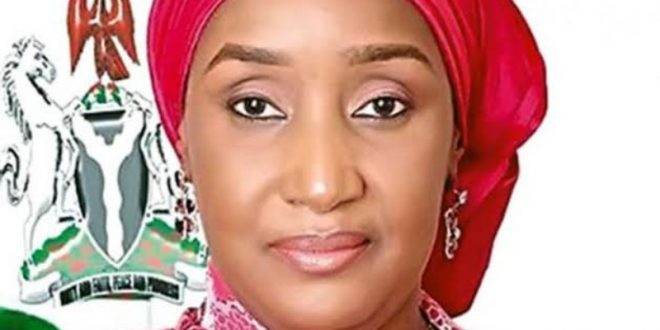ABUJA: Minister of Humanitarian Affairs and Disaster Management, Hadjia Sadiya Farouq, has said that Nigerians that have more than N5,000 in their bank accounts will not receive the Federal Government’s palliatives to mitigate the effects of the present lockdown due to coronavirus pandemic.
Hadjia Farouq disclosed this in a chat with State House correspondents in Abuja, as she spoke of the modalities being put in place for disbursements, saying her ministry intended to focus on the urban poor as it carries out President Muhammadu Buhari’s directive on the distribution of palliatives.
Her words: “You are aware that the president in his broadcast of Monday, 13th April, 2020, directed that we expand the beneficiaries of the conditional cash transfer by one million and in this regard, we are going to focus more now on the urban poor.
“These are people who depend on the informal sector to earn their livelihood; they are daily wage earners and these are the people that we are really going to focus more on as well as people living with disabilities.”
She stated further that the ministry is considering three ways to select the beneficiaries of the schemes, saying: “Well, we have three options; one, we are going to use the national social register that we already have; two, we are also going to focus on the urban poor as I mentioned, by using their verified BVN accounts to get them, that is, people that have an account balance of N5,000 and below.
“We are also using the mobile networks to know people that top up the credit units for their phones with maybe N100 or less. Those are also people that we consider to be poor and vulnerable. So, these are the three options that we are exploring and I am sure that by the time we get this data we will be able to give this intervention.”
According to her, only 25 per cent of the population will benefit for now, even though the scope may be expanded later.
She added: “Let me also say that we have a standard. 25 per cent of the total population is what we will take out. It cannot go round, but we are starting from somewhere. Around 25 percent of, let’s say the location of Lagos State for example is what is going to benefit from this intervention that we are doing. Going forward, we might expand it, but this is what is obtainable for now.”
 Startrend International Magazine For Your Latest News And Entertainment Gists
Startrend International Magazine For Your Latest News And Entertainment Gists




